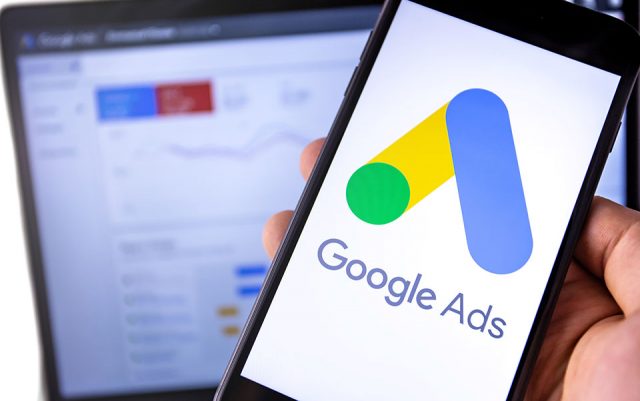
Google Ads Optimization Checklist For Better Performance
This article will discuss a Google Ads optimization checklist to help you get the most out of your campaigns.
Google dominates the search engine market with a 76% market share and a 73% paid search market share. This illustrates Google Ads’ importance in digital marketing.
Google Ads is one of the most effective ways to reach potential customers. Recent studies reflect that Ads influence 90%of consumers’ purchase decisions.
What does this mean for businesses?
Simply put, businesses that are not using Google Ads are missing out on a massive chunk of potential customers.50% of consumers who click on Ads are likely to purchase compared to visitors from organic searches.
So, how effective are Google Ads?
According to Google Economic Impact, Google Search and Ads deliver an $8 ROI on each $1 spent. This is an impressive number, a reason many businesses are using Ads to reach more customers.
However, as with any marketing tactic, there is room for improvement. This article will discuss a Google Ads optimization checklist to help you get the most out of your campaigns.
Why are Google ads so important?
Google Ads are essential because they offer a vast potential audience, an impressive average conversion rate of 4.40%, and the ability to target specific demographics within this massive audience.
Here are some of the benefits of Google ads:
- Huge potential audience
- An impressive average conversion rate of 4.40% on search networks and 0.57% on the display network.
- Ability to target specific demographics, such as gender or age range
- Low cost per click (CPC) and high Click-Through Rates (CTR)
- High return on advertising spend (ROAS, ROI)
- Multiple ad formats and types of ads are available
- Freedom to allocate a daily budget.
- With Ads, you can track conversions from all stages of the funnel.
- It can be used in combination with other marketing channels to create a multi-channel funnel.
What is a good optimization score for Google ads?
Google Ads optimization is vital for two reasons. First, optimizing your campaigns can help you achieve better results. Second, optimizing your campaigns is required to ensure order to meet your bid strategy.
To ensure that your ads are running correctly, you should aim for an optimization score of at least 80%. This score means that Google ads understands and is focused on your bid strategy.
According to PPCexpo, if your optimization score is lower than 80%, you may not be getting the most out of your campaigns. In that case, you should work to improve your optimization score by implementing the following Google ads optimization checklist.
Google Ads optimization Checklist
Define your campaign goal
A clear campaign goal is a crucial part of your Google Ads optimization checklist. A campaign goal gives Google Ads the ability to understand your objectives. It also helps you set goals for individual ad groups and ad campaigns.
Google Ads offers a variety of campaign goals, including:
- Reach
- Conversion
- Clicks
You should focus on a single goal. If you have multiple goals, you will not be able to optimize your campaigns effectively.
Create tightly themed ad groups
If you have a small budget, you should create an ad group for each primary keyword or category that you want to target. This is known as segmentation, and it is an integral part of an effective campaign.
For example, if you are trying to promote your restaurant business on Google Ads, you can create an ad group for keywords such as “restaurant,” “chicken wings,” “best burgers in town,” etc.
Ad groups are helpful for several reasons. First, they ensure that your campaign is relevant to the users who visit your website. Second, they help Google Ads understand which keywords and categories to target. Finally, they make sure that you spend your daily budget on the most effective ads.
Write compelling ads
A compelling ad has a clear message and a call to action. It is also a good idea to include the brand name, the type of business, the location, the number of locations, and other relevant information.
An effective ad also includes a title, a description, and a landing page.
For example, if you promote a new restaurant, you can write a compelling ad with a clear call to action: “Try our delicious burgers.”
Create a negative keyword list and use it effectively
A negative keyword list is a tool that helps you exclude specific keywords from your ads. You can create a list of negative keywords using your campaigns, account settings, or a third-party tool.
Negative keywords are useful for two reasons. First, they allow you to set specific rules for your campaigns. This is helpful when you are trying to achieve particular goals. Second, they help Google Ads to exclude irrelevant keywords from your ads.
For example, if you have a budget of $100 per day, you should not target keywords such as “free” or “free gift” because they do not add value to your ad campaign.
Choose the right keywords and target them effectively
Targeting the right keywords is an essential part of your campaign optimization checklist. If you target too broad keywords, your ads will not be relevant to the users who visit your website.
For example, if you are trying to promote your restaurant, you should choose keywords relevant to the type of business and service you provide. This way, your ads will be more effective.
You can also use the Ads editor to add the exact keyword that you want to target.
Re-optimize your ads regularly.
A practical Google Ads optimization checklist includes regular re-optimizations. This is a time-consuming process, but it is an essential part of your campaign optimization checklist.
For example, if you have been running an ad campaign for two weeks, you should re-optimize your ads before moving on to the next stage. This helps Google Ads understand which keywords and ads perform best and which ads do not perform.
When you re-optimize your ads, you will notice a difference in the performance of your campaigns.
Make sure to pay attention to the performance of your ads. It will help you improve your ad copy and the landing pages that you use.
Increase the number of keywords in your account
If you have a limited budget, it is a good idea to choose only a few keywords. However, it is good to use a few broad keywords and many narrow ones if you have a large budget.
Choose a relevant set of keywords.
To increase the number of keywords in your ad campaign, choose a set of relevant keywords.
For example, if you want to promote a new restaurant, you can target a keyword such as “best burgers in town.” However, if you’re going to promote a pizza place, you can target a keyword such as “pizza.”
Target only relevant keywords
Targeting only relevant keywords is an effective way to get more clicks on your ads. This is because most people will click on an ad that is relevant to their interests.
Find new, relevant keywords to add to your campaign
It is a good idea to monitor the performance of your ads. This is an excellent way to find new keywords to include in your ad campaigns.
For example, if your previous ads have not been performing well, it is a good idea to look for new keywords that will serve better.
When you use a new keyword, make sure that you have a positive intent with the ad. For example, if you are promoting a restaurant, the ad should not be about dog food.
Track conversions from all stages of the funnel.
The most important part of an effective Google Ads optimization checklist is monitoring the performance of your ads.
This includes tracking the number of clicks, the conversions, and the cost per conversion.
For example, if you use a specific ad campaign, you can set up an A/B test. This allows you to compare the performance of two ads and find out which one performs better.
You can also track the performance of your ads on different landing pages. This will help you find out which ones work the best and which ones do not work.
When you use a landing page that does not convert well, you can find out why. This helps you to improve the performance of your landing pages.
Create landing pages that are relevant to the ad and the target CPA
In addition to having a suitable ad copy and landing page, it is also essential to create relevant landing pages. This is because most people will click on an ad.
If you want to increase the number of conversions, you should ensure that the landing page is relevant to the ad. This helps you to make a positive impact on your business.
Measure results and adjust bids and budget as needed
If you are optimizing your ads correctly, you will see improvements in the performance of your campaign.
However, if you do not see the expected performance, it is a good idea to adjust your bidding strategy and budget as needed. This will help you to get better results.
If you are using a high budget, it is good to keep increasing it until you find the right balance. This is because an increased budget will allow you to target more keywords.
This will make your ad more relevant. In addition, the more relevant your ad is, the higher the chances are that your ad will get clicked.
When you use a low budget, it is good to increase it as much as possible. This will help you to target a large set of keywords.
This will make your ad more effective and increase the chances of getting clicks on your ad.
Conclusion
Google Ads optimization is an effective way to make your ads more relevant and increase the number of clicks. This will help you to save money and gain a lot of leads at the same time.
In addition, you must monitor the performance of your ads regularly. This will help you to find new keywords to add to your ad campaigns. It is also essential to track the conversion rate of your ads. This will help you to find out which ads are working well and which ones are not.


